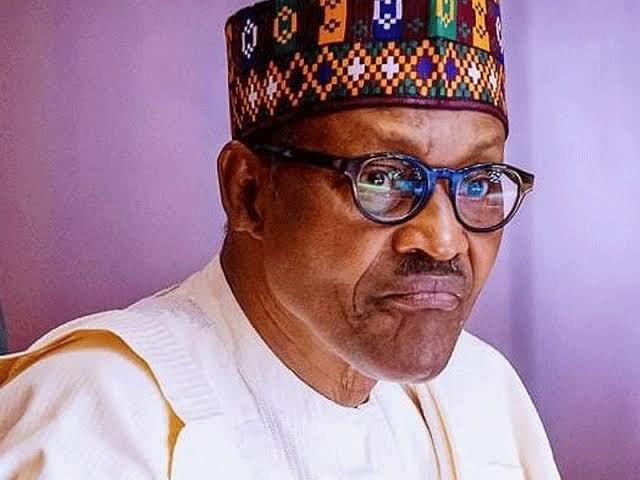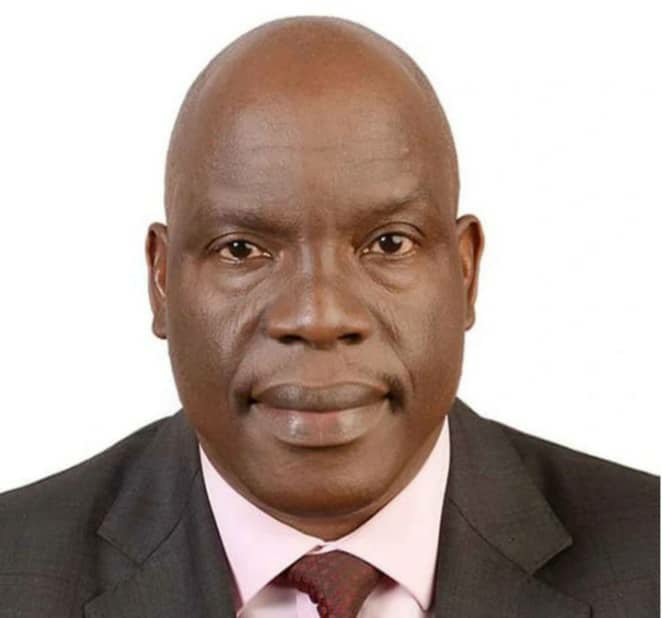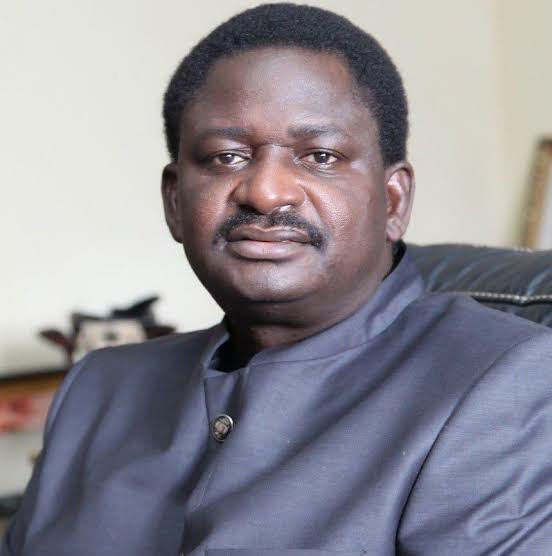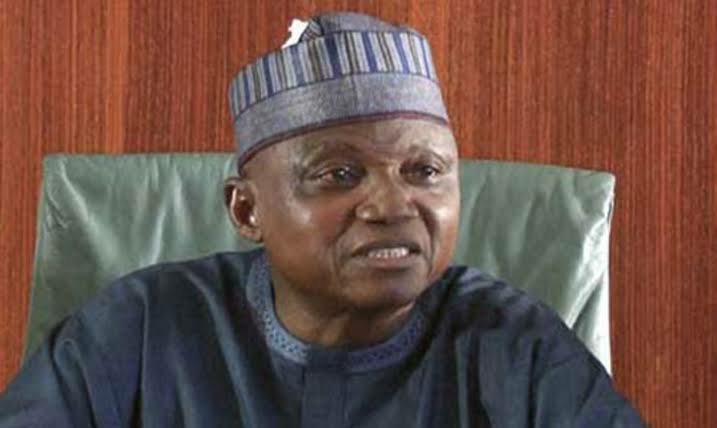Business
BUSTED: How ExxonMobil-Seplat Deal Backflip Exposed PIA Loopholes

Agency Report

President Muhammadu Buhari
Mixed reactions have continued to trail the reversal and conflicting signals from the federal government regarding the acquisition of the entire share capital of Mobil Producing Nigeria Unlimited by Seplat Energy Offshore Limited, a wholly-owned subsidiary of Seplat Energy Plc.
It is now widely believed that the ExxonMobil and Seplat assets transfer deal which is the first test for the Petroleum Industry Act (PIA) 2021, the governing regulatory instrument in the petroleum industry enacted barely one year ago, has not just brought to the fore the deficiencies and potential exploitable loopholes in the law but also rekindled age-long bickering and in-fighting that dogged the petroleum institutions and government in power.
Industry watchers keenly following the development have therefore warned of the potential consequences that truncating the ExxonMobil-Seplat deal could cause other International Oil Companies (IOCs), the likes of TotalEnergies looking to also divest some of its assets, to be discouraged from going into negotiations thereby giving wrong signal to the international community.
Amid concerns and uncertainty about the next line of action from the government, investors that have acquired Seplat’s shares following earlier approval of the deal by President Muhammadu Buhari would ultimately be counting on the Nigerian government to salvage the transaction to save the nation further embarrassment and loss of investors’ confidence.
According to Bloomberg, a New York-based media conglomerate, the deal would have been the first major transaction to be announced since Nigeria passed sweeping legislation aimed at bolstering oil and gas investments after two decades of uncertainty.

Gbrnga Komolafe
The expectations from the reforms brought in the industry by the PIA 2021 was that unhealthy rivalry among petroleum agencies such as the one in September 2017 between the two most senior executives superintending over the Nigerian oil and gas industry, then Minister of State for Petroleum, Ibe Kachikwu and the Group Managing Director of the NNPC, Maikanti Baru (late), would be a thing of the past. However, fracas within the government and its agencies surrounding the revocation and restoration of oil license or permit, as well as interagency rivalry have remained with the outcome of such, leaving grave implications on Nigeria’s already gloomy investment environment.
In January this year, the NUPRC revoked oil mining licenses awarded to Chinese firm, Addax Petroleum. The revocation of the award happened for the second time in less than 12 months.
Addax, owned by the Chinese state-run Sinopec, has a production sharing contract with the Nigerian National Petroleum Cooperation. Oil Mining Licenses (OMLs) 123, 124, 126 and 137 granted to Addax were initially revoked in March 2021 by the defunct Department of Petroleum Resources (DPR) but was a month later (April) restored on orders of President Muhammadu Buhari following the intervention of the Nigerian National Petroleum Corporation (NNPC).
However, in a shocking revealing to the industry, Gbenga Komolafe the Chief Executive Officer of the Nigerian Upstream Petroleum Regulatory Commission (NUPRC), in January 2022 announced that the assets had been reverted to NNPC’s ownership because Addax Petroleum was not able to meet their obligations in line with the provisions of the award.

Femi Adesina
The ExxonMobil-Seplat Backstory
ExxonMobil, Delaware, USA, had in February announced a $1.28 billion transaction, being the sale of its entire shares in Mobil Producing Nigeria Unlimited (MPNU) to Seplat Offshore Ltd., a subsidiary of Seplat Energy Nigeria, was pending ministerial approval.
The transaction involved the acquisition of the entire offshore shallow water business of ExxonMobil in Nigeria and was expected to deliver 186 per cent increase in production from 51,000 barrels per day (bpd) to 146,000 bpd or 170 per cent increase in 2P liquids reserves, from 241 MMbbl to 650 MMbbl. In addition, it was expected to deliver a 14 per cent increase in 2P gas reserves, from 1,501 Bscf to 1,712 Bscf, plus significant undeveloped gas potential of 2,910 Bscf (JV: 7,275 Bscf).
Furthermore, it would increase by 89 per cent the total 2P reserves, from 499 MMboe to 945 MMboe, including offshore fields with dedicated, MPNU-operated export routes offering enhanced security and reliability.
However, the Nigerian National Petroleum Company, (NNPC), in a letter to ExxonMobil, insisted it wanted to exercise a right of first refusal, a move which many industry experts believed was not applicable to divestment of participating interest in the Joint Operating Agreement. NNPC equally dragged ExxonMobil to a Federal High Court in Abuja to block the deal’s consummation to Seplat.

Garba Shehu
A Federal High Court judge in Abuja had granted NNPC an “order of interim injunction” on July 6, 2022, barring Exxon Mobil “from completing any divestment”
President Muhammadu Buhari at that instant was reported to have declined approval to the acquisition.
“We regret to inform you that His Excellency, the Minister of Petroleum Resources, has declined his consent to the transaction,” a letter written by the NUPRC said.
Despite the court’s verdict, a report later emerged that President Buhari had made a U-turn by approving in his capacity as the Minister of Petroleum Resources that the deal be consummated by Mobil and Seplat. The industry was in for another shock when presidential spokesman Femi Adesina in a statement conveyed the assent to the Seplat/Mobil deal.
The Presidency’s announcement of the approval of the deal came as shock to many industry players because the transaction had initially been declined on July 5 this year by the President who doubles as the Minister of Petroleum Resources.
But in another twist of events the President once again reversed himself in less than 72hrs after, following a countermand of his consent by the upstream industry regulator, the Nigerian Upstream Petroleum Regulatory Commission (NUPRC).
Garba Shehu the Senior Special Assistant to the President on Media and Publicity explained to the media that Buhari had reversed the decision and the previous misunderstanding was because the “agencies involved in (the) decision had not coordinated well among themselves.” He said the President’s reversal of his earlier approval was in line with the position of the NUPRC that the status quo remained.
According to him, the confusion over ExxonMobil shares was because “the various agencies involved in the decision had not coordinated well among themselves and having looked at all of the facts with all of the ramifications, the president decided the position of the regulator is to be supported.”
NUPRC had, in a statement over Buhari’s earlier approval of the assets acquisition, said the Commission, in line with the provisions of the Petroleum Industry Act 2021, was the sole regulator in dealing with such matters in the Nigerian upstream sector.
The statement from the Chief Executive of the NUPRC Engr. Gbenga Komolafe, said: “As it were, the issue at stake is purely a regulatory matter and the Commission had earlier communicated the decline of Ministerial assent to ExxonMobil in this regard. As such the Commission further affirms that the status quo remains.
Quoting relevant sections of the law which empowers it to hold such view, Komolafe said: “by virtue of the provisions of the Petroleum Industry Act, under section 95, subsection 10, 14 and 15, the commission’s powers in these regards are clearly stated.”
One law, divergent interpretations
The sections highlighted by Komolafe indicated that Section 95, sub-section 10 states, “Where the application for an assignment or a transfer of a petroleum prospecting license of petroleum mining lease is refused, the commission shall inform the applicant of the reasons for the refusal and may give reasonable time within which further representations may be made by the applicant or by third parties in respect of the application.”
In sub-section 14 of same section 95, the PIA states that: “For the purpose of this section, change of control means any person or persons acting jointly or in concert, to acquire direct or indirect beneficial ownership of a percentage of the voting power of the outstanding voting securities of the holder, by contract or otherwise, that exceeds 50 per cent at any time.”
It continued in sub-section 15 thus: “A holder of a petroleum exploration license shall not assign, novate or transfer his license or any right, power or interest without prior written consent of the commission.” The relevant sections of the PIA 2021 which the NUPRC cited as the reason for its decision have continued to elicit interpretations from a cross section of legal practitioners in the industry.
Some who backed the NUPRC posited that the approval by the Presidency was not in conformity with the provisions of the PIA 2021 which gives the sole authority to the Commission.
“The President has no power to unilaterally approve the transaction except on the recommendation of the Commission. So, under what recommendation is the approval based on?
“What the President approved is more or less a request probably from Seplat and not a recommendation from the Commission. The President’s attention had been intimated that the NNPC had already gone to court and got a temporary stay of execution. So, he now waived the approval which more or less affirmed the first decline that was given last month which invalidated this approval that Seplat claimed they have,” an analyst said.
In approving the deal, President Buhari cited the Petroleum Act of 1969 which was a basis for its own “Minister’s” consent. However, the NUPRC cited the PIA as the source of its own powers suggesting that the PIA was the reference act for the transaction.
Other section of legal practitioners who have spoken on the matter suggests the Presidency may have been correct as the PIA mostly addresses oil-producing licenses while oil mining licenses rely on the Petroleum Act of 1969.
An energy analyst, Josiah Adewale, an in an article said the NUPRC referencing to Section 95 of the PIA as guiding ministerial consent was wrong because the PIA does not apply to the MPNU assets, which are OML assets. According to him, OMLs are still guided by the Petroleum Act (PA), and the MPNU’s OML assets are yet to be converted to PIA regime and Buhari exercised the powers of the Minister under the PIA. Section 303 (1) of the PIA unambiguously provides that the PIA does not apply to unconverted OPLs and OMLs until the OPLs and OMLs come up for renewal.
Even at that, whereas Section 95 (15) of the PIA 2021, which NUPRC gleefully quotes provides that “A holder of a petroleum exploration licence shall not assign, novate or transfer his licence or any right, power or interest without prior written consent of the commission”, Section 95 (8) expressly provides that “Where the consent of the minister is granted in respect of the application for a transfer, the Commission shall promptly record the transfer in the appropriate register.”
According to him, industry stakeholders are understandably at a loss as to where NUPRC derives its powers to override the Minister’s consent. He concluded that it is either the NNPC and NUPRC do not understand the law or they are being mischievous with the law, for It is a given in law that the shareholders of a company are distinct from the company, just as the company is a distinct or separate person in the eyes of the law?
Prof. Wumi Illedare, Professor of Petroleum Economics and Policy Research said that the development was quite interesting as it a good case study on PIA institutional powers and a great case study on PIA for Lawyers.
“I was hoping to hear some additional insights on the relevance of PIA 2021 in the decision process or is the decision purely an invocation of the Constitutional Power of an Executive President rather than the Ministerial Power derived from PIA?
“As I have mentioned so many times, we must separate a Presidential Order from a ministerial action within the context of the oil and gas sector. Nigeria’s oil and gas sector is bleeding in the process!” said in a Valuechain’s Whatsapp Chat.
“We have one President but too many personalities with delegated ministerial authority in charge of petroleum!
One key objective of the PIA is the functional independence of PIA institutions without disavowing interdependence! On an issue like this, it is appalling to interject through a presidential press statement. Keep wondering who is advising the Ministry of Petroleum Resources (MoPR) on oil and gas matters.
“Certainly not the intention of the framers of the governance provisions in the PIA. Assets acquisitions process is well articulated in the PIA and Governance is about Institutions not personality!
-

 Politics5 days ago
Politics5 days agoJUST-IN: George Turnah Welcomes Isaac Amakuro’s Disassociation from G-House Political Family
-

 News7 days ago
News7 days agoJUST-IN: Police declare Portable wanted, slam attempted murder and four other alleged offences on him
-

 Breaking News7 days ago
Breaking News7 days agoEdwin Clark dies at 97
-

 Politics7 days ago
Politics7 days agoYou Have 72hurs To Resign Your Appointments From Gov Diri’s Govt: Alabh George Turnah Tells Loyalist.
-

 National6 days ago
National6 days agoNigerian Cybercrime Police Centre Summons UK-Based Blogger Over Sowore Birthday Post
-

 News6 days ago
News6 days agoDr. Ken Robinson: My Message On The Passing Of Chief Edwin Kiagbodo Clark
-

 Crime6 days ago
Crime6 days agoTwo residents of FCT killed by kidnappers due to delays in paying their ransom
-

 Politics7 days ago
Politics7 days agoUPDATE: Confusion as Newly Elected LAHA Speaker, Meranda Reportedly Resigns




